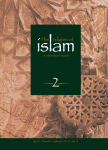The Religion Of Islam vol.2

Chapter XXXI - Misconception of
The Duty of Jihad
A very great misconception prevails in the West with regard to the Islamic injunction of jihad.
In a statement by Dr. A.B. Macdonald in the "Encyclopedia of Islam" on the article of jihad, we find that the writer goes even as far as to begin his article thus:
"The spread of Islam by arms is a religious duty upon Muslims in general"; as if Jihad meant not only war but was undertaken for the propagation of Islam.
Another eminent Christian writer makes a similar statement. "Jihad" - he writes - "means the fighting against unbelievers with the object of either winning them over to Islam, or subduing and exterminating them in case they refuse to become Muslims; and the causing of Islam to spread and triumph over all religions is considered a sacred duty of the Muslim nation ( [1])
It is really a great pity that such learned scholars had not taken the trouble to consult an ordinary dictionary of the Arabic language, so that they could have avoided such glaring misrepresentation. “Jihad” in Arabic means the exerting of one’s utmost power in repelling an enemy. It is of three kinds, viz. the carring on of struggle:
1- against a visible enemy
2- against the temptation of the devil
3- against one’s own passions.
In language “Jihad” is far from being synonymous with war, while the meaning of war undertaken for the propagation of Islam which is supposed by Western writers to be the significance of Jihad, is unknown equally to the Arabic language and to the teachings of the Holy Koran.
There is prevalent conception that “at Mecca the Holy Koran enjoined patience, but when at Madina (when the Muslims became somewhat in power) Jihad were two contradictory attitudes. The error of this view is clearly shown by verse 110 of Chapter XVI which was revealed at Mecca; it enjoins patience and Jihad in the same breath:
“God the all-Merciful and Forgiving shall bless those who emigrate (from Mecca) after they are persecuted, then struggle hard (adopt Jihad) and are patient”
It should be noted that the Jihad spoken of here is certainly not in connection with the fighting, for the verse was revealed at Mecca, when the believers began to emigrate to Medina, so that they may not again be afflicted by the Meccan idolaters.
Islam Was Not Spread By Force
The propagation of Islam is no doubt a religious duty incumbent upon every true Muslim who must follow the example of the Prophet, but the spread of Islam by force is a thing of which no trace can be found either in the Holy Koran or in the traditions of the Prophet. Islam is against aggression, sanction is given for war only in self-defence
"Fight in defence of the cause of God against those who attack you begin ye no hostilities. Verily God loveth not the aggressors. And if they (the enemies of Islam) incline towards peace incline thou (the Prophet) also to peace, and have trust in God" (VIII -61).
There is not the least ground for the oft-repeated allegation that Islam is intolerant and was propagates by the sword. The Koran states clearly: "There is no compulsion in religion," and the reason is added : "the right course is clearly distinct from the wrong one (II-256). It was only when the Muslims' liberty and particularly their freedom of worship was threatened and actually attacked that Islam seized the sword in self-defence as it will ever do. But Islam never interfered with the dogmas of any moral faith. It never invented the rack or the stake for stifling difference of opinion, or strangling human conscience, or exterminating heresy.
Fearful Wars of The Christian Clovis
It has been alleged that a warlike spirit was infused into mediaeval Christianity by Islam. The massacres of Justinian, the Byzantine Emperor (527-562) and the fearful wars of the Christian Clovis (466-511) in the names of religion occurred long before the time of the Prophet Muhammad. The conduct of the Christian Crusaders when they captured Jerusalem provided a striking contrast to the behaviour of the Muslims when they occupied the city 600 years earlier.
When the Khalifa 'Omar took Jerusalem (A.D. 637) he rode into the city by the side of the Patriarch Sophronius, conversing with him on its antiquities. At the hour of prayer, he declined to perform his devotions in the church of Resurrection, in which he chanced to be, but prayed on the steps of the Church of Constantine; "for," said he to the Patriarch, "had I done so (i.e. had he performed his prayers inside the Church), the Muslims in a future age might have infringed the treaty under colour of imitating my example." But in the capture by the Christian Crusaders, the brains of young children were dashed out against the walls; infants were pitched over the battlements; men were roasted at fires; some were ripped up to see if they had swallowed gold; the Jews were driven into their synagogue and there burnt; a massacre of nearly 70,000 persons took place, and the Pope's legates were seen partaking in the triumph! ([2]).
When the Roman Emperor embraced Christianity, the population of the whole Roman Empire, including Egypt, was by decree forced to renounce all other religions and adopt Christianity; but it was until after five hundred years of Muslim rule in Egypt that, as the result of peaceful conversion, the Muslims formed only 50 per cent of the total population, including the Arab departing hosts.
([1]) Dr. Klein’s article on “Jihad” in the “Review of the Religion of Islam”
([2]) Draper's "History of the Intellectual Development of Egypt", Vol. II.
